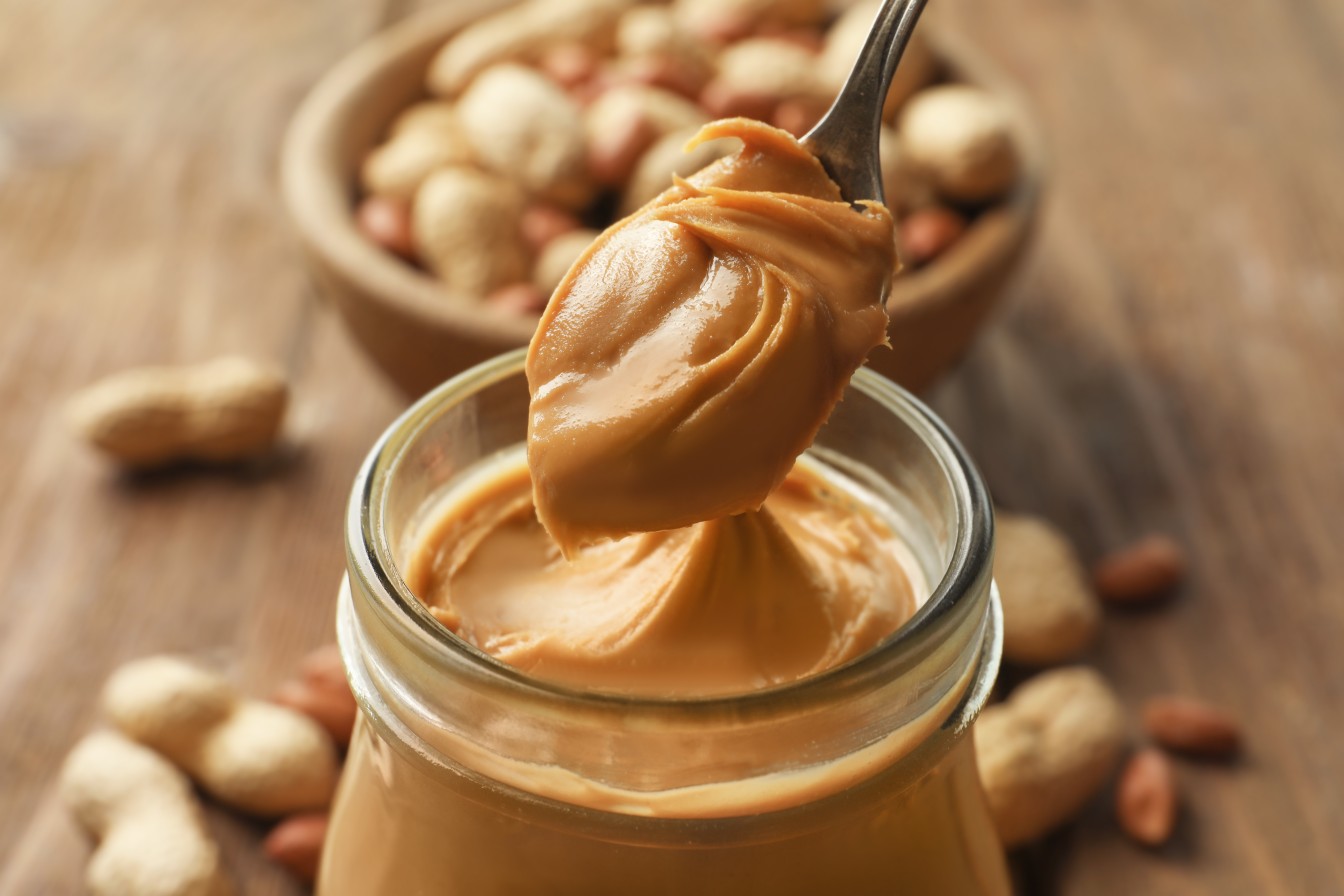
Good old-fashioned peanut butter is good for you, after all.
Turns out it benefits brain function, including memory, and cuts down on stress, particularly in healthy young adults, new research shows.
Read More »This new research backs up growing evidence of food as medicine, says Dr. Samara Sterling, a nutrition scientist who is research director at The Peanut Institute. It shows the benefits healthy choices of food can have on the young as well as the old.
Peanut butter is an affordable way to load up on minerals and vitamins that can promote mental as well as brain health, she adds.
Two groups
In the study a group of healthy young adults, mostly students, aged 18 to 33 ate two tablespoons of peanut butter or one and three-quarters tablespoons of roasted peanuts (with their skins on) a day. Another group ate a butter compound that did not contain the same compounds as those found in peanut butter. Those who took part in the study could eat the peanut butter at any time of the day. Grapes, dark chocolate, wine, and berries were excluded from the participants’ diet as they contain high amounts of resveratrol, which is present in peanuts.
Brain functions measured
At the start of the investigation trained staff at the university measured the brain functions of those who took part in the study. They conducted a wide range of scientifically accepted neuropsychological tests as well as questionnaires on mood disorder. The tests were designed to assess three main aspects of the working of the brain—executive function, memory and processing speed. In addition, anxiety and depression were detected using The Hospital Anxiety and Depression Scale.
The study participants were examined at various intervals to ensure that they were keeping to the requirements of the research investigation. The tests on brain function were conducted again at the end of the seven-month study and the results compared against those at the start of the investigation.
Relatively small amounts
The daily amounts of peanut butter that were eaten in the study were relatively small, says Sterling. A small amount added to one’s diet can have a significant effect.
If you break down the nutritional structure in peanuts you will find that they have a specific combination of minerals, vitamins, and bioactive compounds that can aid in brain function and mental health, she adds. This research, which is the first of its kind, indicates the potential benefits to the brain of eating peanut butter and peanuts among younger adults, she says. The study is published in Clinical Nutrition.
Previous studies
Whereas the study at the University of Barcelona was conducted on young adults, mostly college-age students, other studies have found that eating peanut butter also benefits seniors.
A 2021 study found adults aged from 60 to 80 who never ate peanuts were from 30 percent to 50 percent more likely to perform poorly on tests that measure memory, language, learning, attentiveness, and processing speed (the time that it takes a person to process information and react to it) than those who did eat peanuts. The study was published in the Journal of the Prevention of Alzheimer’s Disease.
Another study, conducted in 2018, found that higher brain function scores were recorded among adults aged more than 55 who ate only 10 grams (a little more than half a tablespoon) of peanuts a day. They also recorded a 40 percent lower chance of having poor brain function. Even peanut skins can deliver benefits, according to a 2016 study, which found that they improved cognitive function and cerebrovascular function in men and women.
What peanuts contain
Researchers in these studies point to polyphenols and a variety of fatty acids that are present in peanuts that likely led to these results.
They point out, too, that additional compounds found in peanuts that contribute to brain health include:
• Niacin
Those who ate more niacin showed a slower rate of decline in brain function and a reduction of 70 percent in the chances of suffering from Alzheimer’s disease, according to a recent study among adults of 65 and older.
• Vitamin E
This vitamin has been found to increase healthy aging of the brain and to slow down cognitive decline that is caused by Alzheimer’s disease. Peanuts are a source of Vitamin E.
• Resveratrol
This bioactive compound that is found in peanuts is believed to be helpful in fighting diseases that degenerate the nerves. It also has been shown to slow the onset of Alzheimer’s disease.
• p-Coumaric acid
This is an antioxidant that is believed to regulate anxiety, stress, and mood in the brain. A study found that it might have similar effects in reducing stress as Diazepam, a leading drug used to reduce anxiety.





